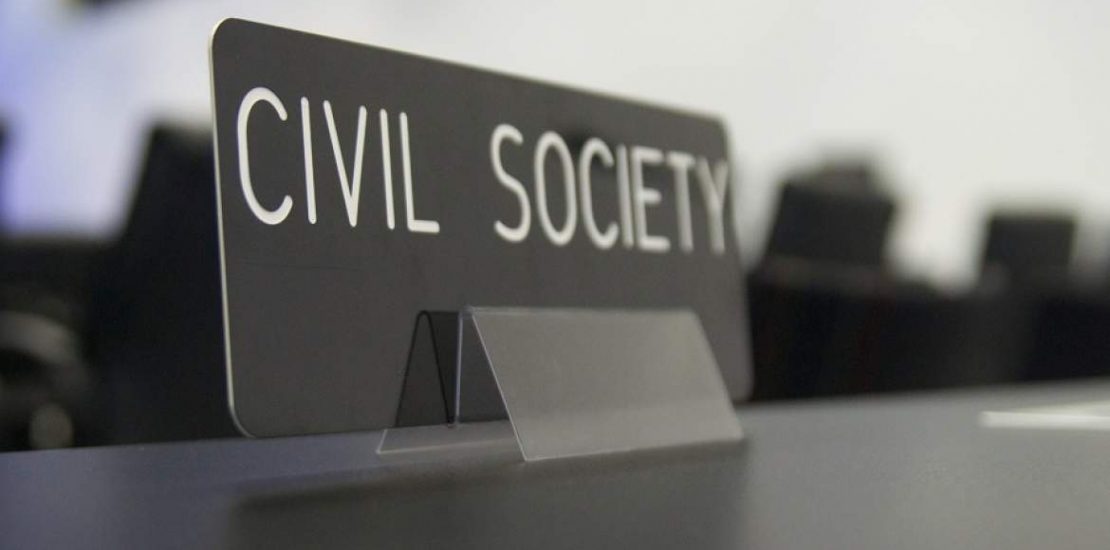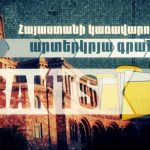- 15 November, 2017
- Armenia’s Foreign Grants

Armenian authorities have launched an organized campaign against civil society in order to suppress the legal activity of the non-governmental organizations in the republic. This long-lasting policy has become especially active during the last three months. Both government officials and deputies, and some media outlets are trying to discredit the civil society.
In order to reach that end, the government and some media make use of various manipulation techniques, distortion of facts, and spread disinformation. It is obvious that the leaders of this struggle are the ruling party and Russian propaganda tools in Armenia.
TV Campaign
The discussion of the Law on Prevention of Domestic Violence and Protection of the Victims of Domestic Violence instigated a new wave of campaign against the civil society. Ararat TV company, which is located in the same building as the Republican Party headquarters, became a microphone for the members of the “For Restoration of Autonomy” movement, who made ungrounded allegations against some NGOs. The TV company did not give the NGOs the opportunity to respond to the allegations. It was at this time that the discussion on creating control mechanisms over non-governmental organizations emerged.
Government against Civil Society
On November 14, Deputy from Republican Party faction at parliament Hayk Babukhanyan talked about the necessity to close NGOs funded by foreign organizations, as well as limit the order of receiving them. Babukhanyan falsely accused “Open Society Foundations” of funding student protests. He also accused Public Agenda NGO of organizing those protests and carrying out anti-government activities. The MP also announced about his intention to draft a bill on closing some of the NGOs.
The campaign against the civil society, which started months ago, led to creation of such a discourse and pressure mechanisms against NGOs. Earlier on, the participants of that campaign were announcing about their desire to tighten policies with regard to NGOs.
It goes without saying that the creation of relevant mechanisms will allow the government to keep the activity of the NGOs under control.
The Largest “Grant-Consumer”
Though the current authorities are trying to create negative sentiments against NGOs, and the civil society in general, by using the label “grant-consumers”, in fact, the Republic of Armenia is the largest “structure” receiving foreign grants on behalf of its dozens of ministries and agencies.
In 2008-2014, the RA government received almost half a billion USD financial assistance from abroad. About 80 percent of that money was received from the US and the European Union.
Ministries that have received foreign grants include but are not limited to the Ministry of Justice (20 million USD), Ministry of Nature Protection (40 million USD), Ministry of Agriculture (almost 8 million USD). Even the RA Ministry of Defense has received 36 million USD worth property from the US, and the RA Police has received 5.5 million USD worth property. The Ministry of Emergency Situations, Ministry of Health, Ministry of Nature Protection and other agencies have also received foreign grants.
Like Russia
The Russian media also works in close cooperation with the Armenian government in the fight against the civil society. The largest media outlet offering a platform for the campaign participants is the Russian “Sputnik” news agency. During the last three months, the Russian agency has made about 15 publications on this topic with misleading headlines, such as “Sponsor of Perversions and Coups: How Soros’s Antennas have Tied Armenia’s Hands”, or “Who Fights for Same-Sex Marriages in Armenia or What Links There are between Deputy Minister and Soros Foundation”, and etc.
The discussions about the Armenian civil society and the need to close some NGOs had earlier reached the Russian “Channel 1”. It is worth reminding that in November 2015 Russia announced the activity of “Open Society Foundations” among others as “undesirable” in the territory of the Russian Federation. With this step, Russia further enhanced the human rights and freedoms protection crisis in the country, leading to serious criticism from the international community.
Aren Melikyan
“Union of Informed Citizens”




